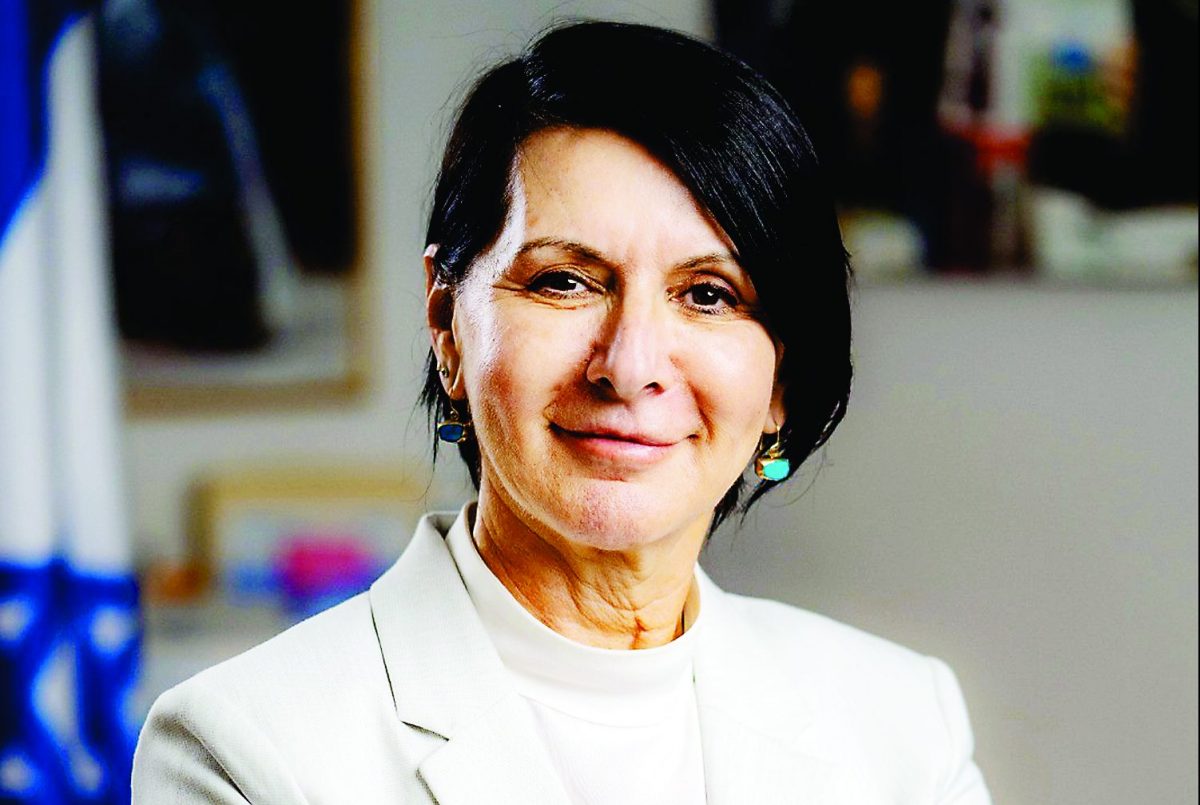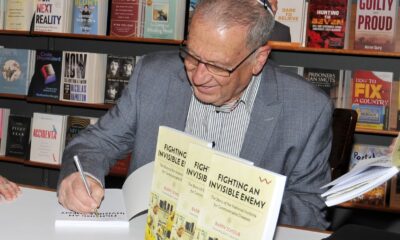
Featured Item

COVID-19 could decimate communities, warns WZO official
As Gusti Yehoshua-Braverman ends her decade-long term as head of department of diaspora affairs at the World Zionist Organization (WZO) in October, she is more determined than ever that Jews across the religious and political spectrum are respected and represented in their communities and in Israel, and that they have a strong connection to the Jewish state.
Speaking to the SA Jewish Report during Israel’s hard lockdown, she says this is even more important in the light of recent events. She is deeply concerned about the impact that the COVID-19 pandemic and its financial fallout will have on diaspora Jewish communities for generations to come. Describing the scenario as a possible “catastrophe”, she predicts that young families with now limited resources will choose to forgo expensive Jewish education for their children in order to make ends meet.
They also might choose not to belong to a shul if they can’t pay membership fees. These decisions will have long-term effects for generations to come, as their children grow up without a Jewish identity. This in turn may have an impact on the sustainability of communities.
“The seeds are being planted now. We will see the fruits only in 20 to 30 years. Leaders must reconsider what they do in the near future not to lose these young families,” she says.
Having visited South Africa a number of times, Yehoshua-Braverman says she greatly admires the community and loves visiting our shores. She is especially impressed with the work of the South African Zionist Federation and the South African Friends of Israel in building a relationship with South Africans who aren’t Jewish but care deeply for Israel.
“This is amazing in my eyes. To see people who aren’t Jewish embrace Israel is really inspiring. It’s not something to be taken for granted, and I can see how much effort is put into this.”
However, she was very surprised to see that the Orthodox and Progressive communities here don’t mix, and that Progressive Jews are often excluded from communal events and Jewish school campuses.
“We need to be more inclusive, more respectful, and more tolerant. I was surprised and disappointed, and would like to see Orthodox events and environments opening up to include others. Every Jew is entitled to his or her own political opinions and religious beliefs, and should have a voice. I’m against blurring differences. The Torah has many faces, and we should embrace it. I would say the same if it was the Progressive excluding the Orthodox. It’s not enough to say, ‘We are against discrimination’, and then in our own communities exclude others.”
In turn, she has campaigned tirelessly for Progressive Jews to be acknowledged and represented in the Jewish state, especially the rights of Progressive Jews to have space to pray at the Kotel.
“The Kotel issue isn’t only about a place to pray, it’s a symbol of these Jews not being respected by the state,” she says.
“The Kotel is wide enough, and a compromise was made, but it was rejected by the state. Meanwhile Reform and Progressive Jews around the world are donating to Israel and advocating for it. They give money for universities and hospitals. They see Israel as their homeland, but Israel looks at them as foreigners. I think the state of Israel didn’t realise the damage it caused between Israel and the diaspora around the decisions regarding the Kotel.”
A week after the historic signing of the Abraham Accords and a few days into Israel’s lockdown, Yehoshua-Braverman says that Israelis across the spectrum saw the peace agreement as a moment of joy. However, she describes a deep feeling of mistrust in the government, which went from championing annexation one minute, to casting it aside the next in favour of the peace agreement. Annexation was extremely difficult for diaspora communities to accept, and she is relieved that it has been put aside. But this approach of changing policy at a whim has been carried through to decisions about the lockdown, and she says many Israelis see these changes as prioritising politics over the health of the people.
She hopes that the Abraham Accords will eventually lead to peace between Israelis and Palestinians, and that the Palestinian leadership will realise it “takes two to tango” and choose to soften its hard-line stance on negotiations.
She is critical of the Jewish Nation State Law declaring that Israel is the nation state of the Jewish people, passed by the Knesset two years ago, and emphasises, “Israel should be a Jewish state, there is no doubt about that, and it needs to remain democratic. We must act according to Jewish values, and respect minorities.”
The challenge of young people feeling distanced from Israel continues to grow. Asked how to combat this, she says, “Step by step. We need dialogue, not preaching. There is so much disinformation. Many young people mix the politics of the Israel government with what Israel stands for. Israel isn’t just its government, it’s so many other things. This is what we need to show. At the same time, large numbers of young people in the diaspora refuse to give up on their connection with Israel.”
No matter what Yehoshua-Braverman chooses to do next, she says, “I see myself as having an obligation to serve the Jewish people and to protect the rights of each one, within the diaspora and in Israel.”










